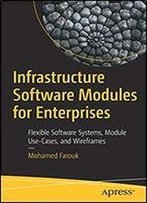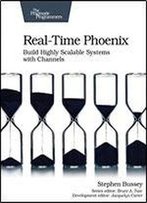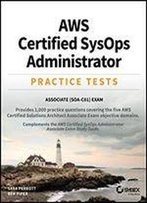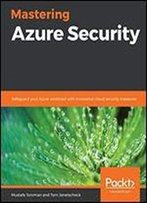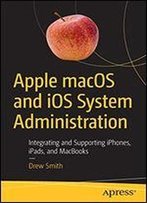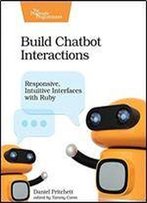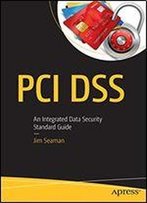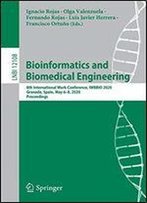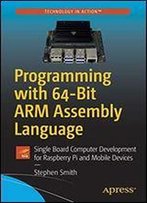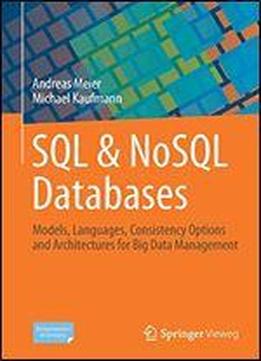
Sql & Nosql Databases: Models, Languages, Consistency Options And Architectures For Big Data Management
by Andreas Meier /
2019 / English / PDF
4 MB Download
This book offers a comprehensive introduction to relational (SQL) and non-relational (NoSQL) databases. The authors thoroughly review the current state of database tools and techniques, and examine coming innovations. The book opens with a broad look at data management, including an overview of information systems and databases, and an explanation of contemporary database types: SQL and NoSQL databases, and their respective management systems The nature and uses of Big Data A high-level view of the organization of data management Data Modeling and Consistency Chapter-length treatment is afforded Data Modeling in both relational and graph databases, including enterprise-wide data architecture, and formulas for database design. Coverage of languages extends from an overview of operators, to SQL and and QBE (Query by Example), to integrity constraints and more. A full chapter probes the challenges of Ensuring Data Consistency, covering: Multi-User Operation Troubleshooting Consistency in Massive Distributed Data Comparison of the ACID and BASE consistency models, and more System Architecture also gets from its own chapter, which explores Processing of Homogeneous and Heterogeneous Data Storage and Access Structures Multi-dimensional Data Structures and Parallel Processing with MapReduce, among other topics. Post-Relational and NoSQL Databases The chapter on post-relational databases discusses the limits of SQL and what lies beyond, including Multi-Dimensional Databases, Knowledge Bases and and Fuzzy Databases. A final chapter covers NoSQL Databases, along with Development of Non-Relational Technologies, Key-Value, Column-Family and Document Stores XML Databases and Graphic Databases, and more The book includes more than 100 tables, examples and illustrations, and each chapter offers a list of resources for further reading. SQL & NoSQL Databases conveys the strengths and weaknesses of relational and non-relational approaches, and shows how to undertake development for big data applications. The book benefits readers including students and practitioners working across the broad field of applied information technology. This textbook has been recommended and developed for university courses in Germany, Austria and Switzerland.
